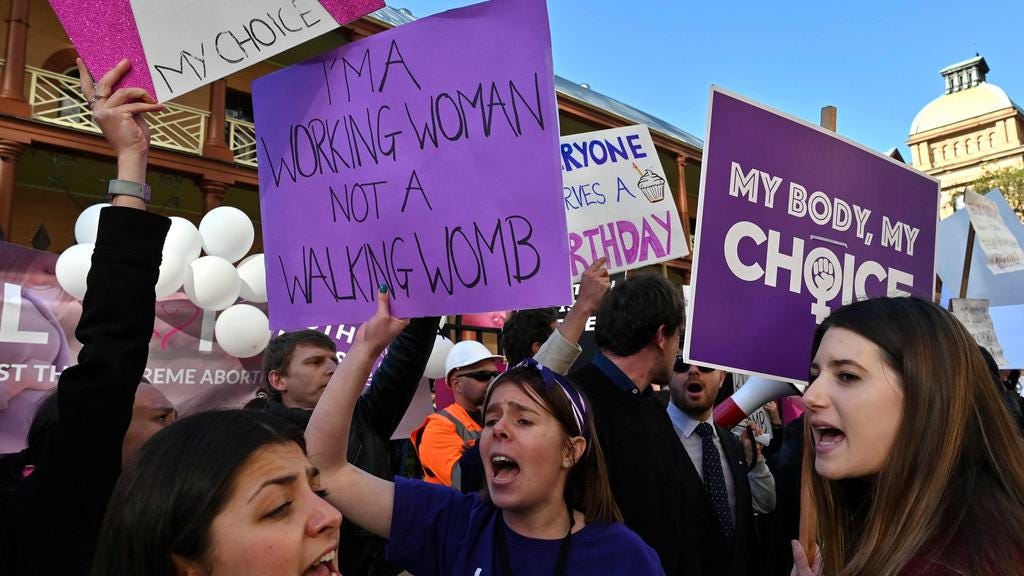Abortion.
My best attempt to explain and steelman the arguments for both sides.
When I taught Philosophy we started with the best argument for and against legal abortion:
Judith Jarvis Thompson’s A Defense of Abortion is generally held to be the pro-choice argument:
Summary - A fetus, even if it is a person, does not have the right to claim use of the mother’s body against the mother’s wishes. The famous analogy here is of someone who wakes up and finds themselves medically connected to a famous violin player, who will die if disconnected. It’d be nice of the mother to keep the violinist alive, but it’s wrong for anyone to impose that situation on her and it’s morally acceptable to sever that connection.
Don Marquis’ A Future Like Ours argument is generally held to be the best pro-life argument:
Summary - A fetus has the essential property of personhood as anyone else because it has a future like anyone else, and therefore deserves the same right to life. Cutting off a fetal person from its source of life is a moral wrong, even if that imposes obligations on the mother which are unwanted.
Major milestones in fetal development:
Conception, implantation, brain waves begin, heartbeat begins, fetal viability, birth.
Issues:
When does a fetus go from being a lump of cells to being a person?
How do we weigh the well-being of the fetus against the well-being of the mother?
Systemic issues about gender roles, social mores, family structures, sexual morality, etc.
Autonomy of the mother, and who gets to be part of the decision-making process.
If abortion becomes illegal, what are the penalties for mothers who abort and doctors who facilitate the abortion. What happens when mothers perform abortion on themselves?
How much, if any, say should the father have in making this decision? Are all situations the same? (i.e., the father raped the mother vs. the father is a healthy, good person who has the resources to raise the child alone and desperately wants her to give birth)
Ethical Foundations:
In my class debates, it almost always comes down to Kantian Deontology (fancy German version of the Golden Rule) vs. Utilitarianism (maximize happiness, minimize suffering), with the Kantians being pro-life and the Utilitarians being pro-choice.
Is an action inherently right or wrong, or does it become right or wrong because of the consequences (pleasure and pain) that it creates?
Legal issues:
The ‘originalist’ judicial argument of Alito and those who agree with him involves the right to privacy as found in the 14th Amendment under Griswold v. Connecticut, which covered contraception for married couples. It is the foundation of Roe v. Wade, Lawrence v. Texas (legality of homosexuality) and Obergefell v. Hodges (same sex marriage), and the 14th Amendment (but not the right to privacy) is the foundation of Loving v. Virginia (interracial marriage).
Legal theory isn’t my strong suit, so I’ll just link to SCOTUS Blog and recommend their work on the matter.
Side note:
My favorite class debate was between a pro-life young woman and a pro-choice young man. He was trying to give her rights that she didn’t want.



I'm actually pro-choice of the "safe, legal, and rare" variety, but the violinist example is a TERRIBLE steelman, because it is akin to rape, and IIRC rape accounts for less than 1% of all abortions.
Nearly all pregnant women have willingly made a choice that they know entails a risk of pregnancy--they do not simply wake up pregnant one morning through no actions of their own.
A more accurate comparison would be "a bunch of us were drunk last night and we drew straws to see who had to get hooked up to the sick violinist. I thought it was fun at the time, but now I'm wondering if I can back out."